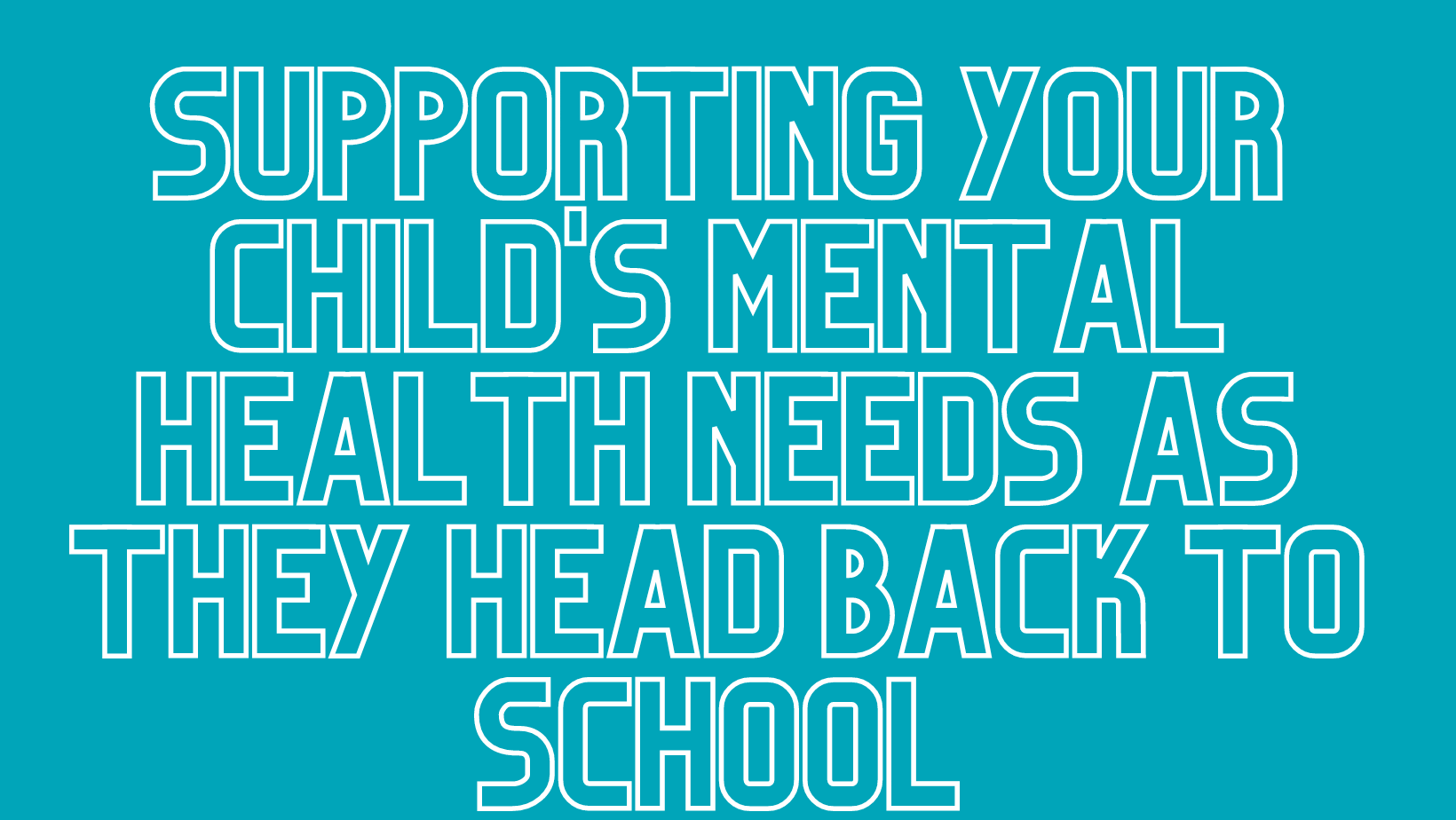
12 Tips to Deal with Family Tension During Thanksgiving Dinner
Thanksgiving is a time for gratitude and connection, but family gatherings can sometimes come with tension and stress. The good news is you can manage these moments with a little preparation and the right mindset.
Here are 12 tips to help you navigate family dynamics and make the holiday enjoyable for everyone, courtesy of the Next Step 4 Mental Health team.
1. Set Realistic Expectations
Understand that not every family moment will be picture-perfect. Embrace the imperfections and focus on enjoying the positive aspects of the gathering.
2. Practice Gratitude
Shift your focus to what you’re thankful for, like good food, being together, or personal milestones. Gratitude can help create a positive atmosphere and reduce stress. Learn more about gratitude here.
3. Plan Ahead
If you know certain topics lead to conflict, consider steering conversations toward lighter subjects like hobbies, shared memories, or favorite holiday traditions.
4. Establish Personal Boundaries
Decide beforehand what behavior or topics you’re not willing to tolerate, and stick to those boundaries. It’s okay to say, “Let’s agree to disagree,” or excuse yourself from a heated discussion.
You might also consider saying:
- “I’m not comfortable discussing this right now, but if you’d like to discuss it privately, we can plan for that.”
- “I’d rather not share my opinion on XYZ, but I’d love to share more about the latest trip I took. Would you like to see a few pictures?”
5. Take a Breather
Step outside for fresh air or retreat to a quiet room if things get overwhelming. Even a five-minute break can help reset your mood and reduce tension.
6. Bring a Mediator
Sometimes, having a friend or partner present can ease tension and help keep interactions balanced. Their neutral perspective may help defuse potential conflicts.
7. Focus on the Kids
If there are children at the gathering, engage with them. Playing a game, watching a movie, or helping with activities can be a fun distraction from family drama.
8. Stay Busy
Offer to help in the kitchen, refill drinks, or set the table. Staying engaged in tasks can help you avoid getting drawn into difficult conversations.
9. Choose Your Battles
Not every comment or disagreement needs a response. Sometimes, letting go of minor annoyances can keep the peace and preserve your energy. You can learn more about fair fighting here.
Or, click here to learn more about communication in marriage.
10. Practice Empathy
Try to understand where others are coming from. Tension often arises from misunderstandings, and a little compassion can go a long way in diffusing it.
To learn more about empathy, tune into this video narrated by Brene Brown:
11. Have an Exit Strategy
If the situation becomes too stressful, have a plan to leave early. Politely excuse yourself, citing an early morning or other commitments, and prioritize your well-being.
12. Seek Support if Needed
If family tension is a recurring issue, consider speaking with a therapist or counselor to explore strategies for managing these dynamics. You might even consider therapy BEFORE attending a gathering. This can help give you the tools you need to stay calm and create your boundaries.
Thanksgiving is an opportunity to connect, but it’s also important to prioritize your mental health. At Next Step 4 Mental Health, we’re here to help you navigate family challenges and create a path to healthier relationships. Reach out to our team if you need extra support this holiday season.
Learn More
8 Mental Health Tips for Fall: Managing the Seasonal Shift
As the days get shorter and the temperatures drop, it’s common to feel a shift in mood and energy levels. The decreasing daylight in the fall can impact your mental health, but there are steps you can take to stay balanced.
Here are some tips to help you manage the seasonal change and protect your well-being.
1. Embrace Natural Light
With fewer daylight hours, it’s important to make the most of natural light. Spend time outdoors during the day, especially in the morning, to boost your mood and energy. If getting outside is tough, try to position yourself near windows to absorb as much sunlight as possible.
2. Maintain a Regular Sleep Routine
The shift in daylight can disrupt your sleep-wake cycle. Establish a consistent sleep schedule to help regulate your body’s internal clock. Aim for 7-9 hours of sleep each night, and avoid screens before bedtime to encourage better rest.
You can learn more about how light affects your sleep here.
3. Stay Active
Exercise is a powerful mood booster, especially when the darker days make you feel sluggish. Whether it’s a brisk walk, yoga, or a workout at the gym, staying physically active can increase endorphins and help combat feelings of fatigue or sadness.
4. Practice Mindfulness
Mindfulness practices like meditation, deep breathing, or journaling can help you stay grounded during the seasonal transition. Set aside a few minutes each day to focus on your mental and emotional well-being, reducing stress and improving your mood.
Try this guided muscle relaxation before bed:
5. Connect with Others
Fall can bring a sense of isolation as the days grow shorter, so it’s important to stay connected with friends and family. Regular social interaction, even virtual, can help combat loneliness and provide emotional support during this time of year.
6. Keep Your Diet Balanced
What you eat can have a big impact on how you feel. Focus on nourishing foods that support your mental health, like leafy greens, whole grains, and omega-3 rich foods like salmon or walnuts. Avoid relying on sugary snacks or caffeine, which can lead to energy crashes and mood swings.

7. Consider Light Therapy
If you find that the lack of daylight significantly affects your mood, light therapy may be an option. Light boxes can mimic natural sunlight, helping to alleviate symptoms of seasonal depression.
Before beginning light therapy, it is important to consult with a physician for recommendations regarding wavelength, dose, duration, timing, etc.
8. Don’t Hesitate to Seek Help
If feelings of sadness, fatigue, or anxiety become overwhelming or persistent, reaching out to a mental health professional can be beneficial. Seasonal Affective Disorder (SAD) is a form of depression that’s triggered by seasonal changes, and it’s important to get the support you need if you’re struggling.
How Next Step 2 Mental Health Can Help
At Next Step 2 Mental Health, we understand how the change in seasons can impact your emotional well-being. Our team of mental health professionals is here to support you through this transition, offering therapy, counseling, and tailored treatment plans for managing seasonal challenges.
Don’t wait to take action—reach out to us today to learn how we can help you maintain your mental health this fall and beyond.
Learn More

5 Tips for Teens Preparing for College: Focusing on Mental Health
Preparing for college is an exciting yet challenging time for many teens. As you anticipate the new experiences and opportunities that await, it’s essential to prioritize your mental health.
A strong mental foundation can help you navigate the transition smoothly and make the most out of your college experience.
Here are five tips to help you prepare for college with your mental health in mind, courtesy of the Next Step team.
1. Establish a Self-Care Routine
Before heading off to college, it’s important to develop a self-care routine that you can maintain during your time there. Self-care involves activities that help you recharge and manage stress. This could include:
- Regular Exercise: Physical activity can significantly impact your mood and stress levels. Find an exercise routine that you enjoy, whether it’s jogging, yoga, or playing a sport.
- Healthy Eating: Balanced nutrition plays a crucial role in your mental well-being. Aim to eat a variety of nutritious foods and stay hydrated.
- Adequate Sleep: Prioritize getting enough sleep each night. Aim for 7-9 hours to ensure you’re well-rested and ready to face the day.
2. Learn Stress Management Techniques
College life can be stressful, with academic pressures, social challenges, and being away from home. Learning effective stress management techniques can help you cope with these demands.
Some techniques to consider include:
- Mindfulness and Meditation: Practices like deep breathing, meditation, and mindfulness can help you stay calm and centered. Try this meditation from ADHD Coach Pam Valdes.
- Time Management: Develop good time management skills to balance your academic and social life effectively. Use planners, calendars, or digital tools to keep track of assignments and commitments.
- Relaxation Techniques: Find what works best for you, whether it’s listening to music, reading, or spending time in nature.
3. Build a Support System
Having a strong support system is vital for your mental health. Before you leave for college, identify people who can offer support, including:
- Family and Friends: Stay connected with your family and friends back home. Regular check-ins can provide comfort and reassurance.
- On-Campus Resources: Familiarize yourself with the mental health resources available at your college. This might include counseling services, mental health workshops, and peer support groups.
- New Connections: Be open to forming new friendships and joining clubs or organizations. Building new relationships can help you feel more connected and supported in your new environment.
4. Set Realistic Expectations
Adjusting to college life can take time, and it’s important to set realistic expectations for yourself. Understand that it’s okay to:
- Feel Homesick: Missing home is a natural part of the transition. Allow yourself to feel these emotions and find ways to cope, such as talking to loved ones or bringing comforting items from home.
- Face Challenges: College comes with its own set of challenges. It’s normal to encounter obstacles, whether academic or social. Don’t hesitate to seek help when needed.
- Take Breaks: Give yourself permission to take breaks and relax. Overloading yourself with commitments can lead to burnout. Balance your workload with downtime.
5. Seek Professional Help if Needed
If you find yourself struggling with your mental health, don’t hesitate to seek professional help. Many colleges offer free or low-cost mental health services. Consider:
- Counseling Services: Many colleges have on-campus counseling centers where you can talk to a therapist or counselor about any issues you’re facing.
- Health Centers: Visit your college’s health center for information on mental health services and support.
- Online Resources: There are numerous online resources and hotlines available if you need immediate assistance or support.
- Telehealth: If you’re heading off to school in Kentucky, NextStep2MentalHealth offers telehealth for Kentucky residents within state lines.
Your Mental Health Matters!
Transitioning to college is a significant milestone, and prioritizing your mental health is crucial for a successful and enjoyable experience. By establishing a self-care routine, learning stress management techniques, building a support system, setting realistic expectations, and seeking professional help when needed, you can prepare yourself for the challenges and opportunities that college life brings.
At NextStep2MentalHealth, we are committed to supporting teens and young adults as they navigate this exciting journey. Remember, taking care of your mental health is a continuous process, and it’s okay to ask for help along the way. Wishing you a fulfilling and mentally healthy college experience!
Need more guidance on preparing for college? Contact NextStep2MentalHealth today to learn more about our services and how we can support you.
Learn More

Mental Health Tips for Men: Embrace Wellness This Men’s Health Month
June is Men’s Health Month, a time dedicated to raising awareness about health issues that affect men and encouraging them to prioritize their well-being.
While physical health often takes the spotlight, mental health is equally important. At NextStep2MentalHealth, our multidisciplinary team believes that addressing mental health head-on can lead to a happier, healthier life.
Here are some practical mental health tips tailored for men.
1. Talk About Your Feelings
Society often teaches men to suppress their emotions, but opening up about how you feel is crucial for mental well-being. Talk to a friend, family member, or therapist about what’s on your mind.
Expressing your emotions can reduce stress and help you gain perspective on your problems.
2. Prioritize Physical Activity
Regular exercise is a powerful tool for improving mental health. Physical activity releases endorphins, which are natural mood lifters. Whether you prefer running, lifting weights, or playing sports, find an activity you enjoy and make it a regular part of your routine.
Need motivation? Check out this blog: [How to Get Motivated to Work Out When You’re Depressed]
3. Stay Connected with Others
Maintaining strong relationships is essential for mental health. Spend time with friends and family, join social clubs, or participate in group activities. Building a support network provides a sense of belonging and can help you through tough times.
4. Seek Professional Help When Needed
There’s no shame in asking for help. If you’re struggling with anxiety, depression, or any other mental health issue, seeking professional support is a smart and courageous step.
Our team can provide strategies and treatments to help you manage your symptoms and improve your quality of life.
5. Practice Mindfulness and Relaxation Techniques
Mindfulness and relaxation techniques, such as meditation and deep breathing exercises, can significantly reduce stress and anxiety. Dedicate a few minutes each day to mindfulness practices to clear your mind and find inner peace.
Try this guided meditation to relax:
6. Maintain a Balanced Diet
What you eat can affect your mood and energy levels. A balanced diet rich in fruits, vegetables, lean proteins, and whole grains can promote better mental health. Avoid excessive alcohol and caffeine, as they can exacerbate anxiety and depression.
7. Get Enough Sleep
Quality sleep is essential for mental health. Aim for 7-9 hours of sleep per night and establish a regular sleep routine. Avoid screens before bedtime and create a calming environment to improve your sleep quality.
To learn more about how warm-colored lights can affect your sleep, read this blog “Do Warm-Colored Lights Help You Sleep Better”?
8. Set Realistic Goals
Setting and achieving goals can give you a sense of purpose and accomplishment. Break larger tasks into smaller, manageable steps and celebrate your progress along the way. This can boost your confidence and reduce feelings of overwhelm.
Click here to learn more about SMART goals.
9. Limit Stress
Stress wreaks havoc on your mind and body. Men tend to handle stress differently than women and are more prone to dissociate or externalize it as anger.
Identify the sources of stress in your life and find ways to manage them. This might involve time management techniques, delegating tasks, or simply taking time for yourself to unwind. Reducing stress can improve both your mental and physical health.
10. Engage in Activities You Enjoy
Make time for hobbies and activities that bring you joy. Whether it’s reading, hiking, playing music, or anything else you love, engaging in enjoyable activities can provide a much-needed mental break and boost your mood.
Take the Next Step for Your Mental Health
This Men’s Health Month, take proactive steps to prioritize your mental well-being. At NextStep2MentalHealth, we’re here to support you on your journey. Remember, seeking help and taking care of your mental health is a sign of strength. Embrace these tips, reach out when needed, and take charge of your mental health today.
Click here to request an appointment.
Learn More

What Is the MTHFR Gene Mutation? And How Does It Affect You?
In recent years, the MTHFR gene has garnered attention for its role in various health conditions and how its mutations can impact your well-being. From cardiovascular health to mental wellness, understanding the implications of MTHFR gene mutations can provide valuable insights into personalized healthcare and lifestyle choices.
Join us as we explore the science behind MTHFR gene mutations and uncover their potential effects on our health and everyday lives.
What Are the Health Implications of the MTHFR Gene Mutations?
Mutations in the MTHFR gene can lead to a variety of health issues, largely due to their impact on your body’s ability to process folate and homocysteine.
A few quick definitions:
Folate
Folate, also known as vitamin B9, is a water-soluble vitamin that plays a crucial role in various bodily functions, particularly in cell division and DNA synthesis. It is essential for the formation of red blood cells and the proper development of the fetal neural tube during pregnancy, which is critical for preventing birth defects like spina bifida. Folate is naturally found in foods such as leafy green vegetables, citrus fruits, beans, and fortified grains.
Note: In supplement form, it is often referred to as folic acid. Folic acid is the synthetic version of folate. This will be an important element to note later in this blog.
Homocysteine
Homocysteine is an amino acid that is produced in the body as part of the process of breaking down the amino acid methionine. Under normal conditions, homocysteine levels are kept in check through various biochemical pathways. However, elevated levels of homocysteine in the blood may indicate problems with these metabolic pathways and are associated with an increased risk of cardiovascular disease, stroke, and other health issues. Factors such as genetic predisposition, poor diet, smoking, and certain medical conditions can contribute to high homocysteine levels. Monitoring and managing homocysteine levels may help with maintaining cardiovascular health.
Now that we’ve defined folate and homocysteine, let’s talk about how the MTHFR mutation can affect your body’s ability to process them.
Some of the key health problems associated with MTHFR mutations include, but are not limited to:
- Elevated Homocysteine Levels: One of the direct consequences of MTHFR mutations is elevated levels of homocysteine, an amino acid in the blood, which is linked to an increased risk of heart diseases, stroke, and peripheral vascular diseases.
- Cardiovascular Disease: The inability to properly metabolize homocysteine can lead to its accumulation, contributing to the development of heart disease and stroke by promoting atherosclerosis (hardening of the arteries).
- Neurological and Psychiatric Disorders: There’s mixed (inconclusive) evidence suggesting the possibility of a link between MTHFR mutations and an increased risk of various neurological and psychiatric conditions, including depression, anxiety, bipolar disorder, and schizophrenia. According to research published in a 2022 article in Frontiers, MTHFR C677T in particular is associated with increased risk of major depressive disorder, bipolar disorder, and schizophrenia. The exact mechanisms are not fully understood but may relate to the role of folate in neurotransmitter synthesis and DNA methylation.
- Increased Cancer Risk: Some studies suggest that MTHFR mutations may be linked to a slightly increased risk of certain cancers, including but not limited to colon cancer and leukemia, possibly due to effects on DNA synthesis and repair.
- Studies have also show a link between MTHFR mutations and Pregnancy Complications and Birth Defects.
What to Do If You Have the MTHFR Mutation
While the thought of having a genetic mutation can sound daunting at first, remember knowledge is power. There are many things you can do:
Supplements to Help
If someone has an abnormal MTHFR genotype, such as the common C677T or A1298C mutations, they may have reduced efficiency in converting folate (vitamin B9) to its active form, methylfolate.
Here are some dietary supplements that might be helpful:
- Methylfolate (L-Methylfolate): This is the bioactive form of folate that can be directly utilized by the body, bypassing the need for conversion by the MTHFR enzyme.
- Vitamin B12 (Methylcobalamin or Hydroxocobalamin): B12 works closely with folate in the methylation cycle. Using methylcobalamin or hydroxocobalamin forms of vitamin B12 can be more effective, as they are more readily utilized by individuals with MTHFR mutations.
- Omega-3 Fatty Acids: These can support brain health and function, contributing to improved mood and cognitive function. Omega-3s are not directly related to the MTHFR mutation but can be beneficial for overall physical and mental health.
- Vitamin B6 (Pyridoxal-5-Phosphate): B6 in its active form, Pyridoxal-5-Phosphate (P-5-P), is crucial for the metabolism of homocysteine and the synthesis of neurotransmitters. It helps in the conversion of homocysteine to methionine, a reaction that can be affected by MTHFR mutations.
- Zinc: Zinc can also support the methylation process, making it a helpful supplement.
A word of caution: don’t grab the synthetic folic acid!
For individuals with the MTHFR gene mutation or other conditions that affect folate metabolism, avoiding folic acid (synthetic form of folate) and opting for methylfolate or natural sources of folate may be recommended. This is because some individuals may have difficulty metabolizing folic acid efficiently, which can lead to elevated levels of unmetabolized folic acid in the bloodstream.
Excessive levels of unmetabolized folic acid have been associated with potential adverse health effects, although more research is needed to fully understand the implications.
Foods to Eat
If you have the MTHFR gene mutation, focusing on foods rich in natural forms of folate, as well as other nutrients involved in methylation processes, may be beneficial.
Here are some examples of foods that are high in these nutrients:
- Leafy Green Vegetables: Spinach, kale, Swiss chard, and other leafy greens are excellent sources of folate. They also contain other essential nutrients like vitamins A, C, and K, as well as minerals like iron and magnesium.
- Legumes: Beans, lentils, chickpeas, and peas are rich in folate, fiber, and protein. They are versatile ingredients that can be incorporated into various dishes, such as soups, salads, and stews.
- Cruciferous Vegetables: Broccoli, Brussels sprouts, cauliflower, and cabbage are not only high in folate but also contain compounds that support detoxification processes in the body.
- Avocado: Avocados are a good source of folate, as well as healthy fats, fiber, and potassium. They can be enjoyed on toast, in salads, or blended into smoothies.
- Citrus Fruits: Oranges, lemons, limes, and grapefruits are rich in vitamin C, which is important for supporting immune function and enhancing iron absorption. Some citrus fruits also contain folate.
- Beets: Beets are packed with folate, as well as antioxidants and dietary nitrates that support cardiovascular health. They can be roasted, steamed, or grated raw into salads.
- Asparagus: Asparagus is a good source of folate and contains compounds that support liver health and detoxification processes.
- Eggs: Eggs are rich in several nutrients, including folate, choline, and B vitamins. They can be prepared in various ways, such as boiled, scrambled, or poached.
- Nuts and Seeds: Walnuts, almonds, flaxseeds, and chia seeds are good sources of folate, as well as healthy fats, protein, and fiber. They can be added to oatmeal, yogurt, or salads for an extra nutritional boost.
- Seafood: Fish such as salmon, trout, and tuna are rich in folate, omega-3 fatty acids, and protein. They are also sources of vitamin D, which is important for bone health and immune function.
It’s essential to maintain a balanced and varied diet that includes a wide range of nutrient-rich foods to support overall health and well-being, especially if you have the MTHFR gene mutation. Additionally, consulting with a healthcare professional or registered dietitian can provide personalized dietary recommendations based on your individual needs and health status.
Lifestyle Modifications
In addition to focusing on dietary choices, there are several lifestyle tips that individuals with the MTHFR gene mutation may find beneficial:
- Regular Exercise: Engaging in regular physical activity can help support overall health and well-being. Aim for a combination of cardiovascular exercise, strength training, and flexibility exercises to promote heart health, maintain muscle mass, and improve mobility.
- Stress Management: Chronic stress can negatively impact methylation processes in the body. Practice stress-reducing techniques such as mindfulness meditation, deep breathing exercises, yoga, or tai chi to promote relaxation and reduce the harmful effects of stress.
- Adequate Sleep: Prioritize getting enough high-quality sleep each night. Aim for 7-9 hours of sleep per night to support optimal physical and mental health. Establishing a regular sleep schedule and creating a relaxing bedtime routine can help improve sleep quality. Avoid blue light for 1-2 hours before bed. (Find out why here.)
- Limit Alcohol and Caffeine: Excessive alcohol consumption can interfere with folate metabolism and methylation processes in the body. Limit alcohol intake to moderate levels, or avoid it altogether if possible. Similarly, limit caffeine intake, especially in the afternoon and evening, to promote better sleep quality.
- Avoid Environmental Toxins: Exposure to environmental toxins such as heavy metals, pesticides, and air pollutants can disrupt methylation processes and contribute to health problems. Minimize exposure to these toxins by choosing organic foods, using natural cleaning and personal care products, and avoiding smoking and secondhand smoke. (Need better personal care products? The Environmental Working Group has a database of clean products.)
- Stay Hydrated: Drink plenty of water throughout the day to stay hydrated and support overall health. Hydration is essential for proper detoxification processes in the body and helps maintain optimal cellular function.
- Quit Smoking: Smoking tobacco can impair folate metabolism and increase the risk of cardiovascular disease and other health problems. If you smoke, consider quitting to improve your overall health and reduce the negative impact on methylation processes.
- Supplement Wisely: In addition to dietary folate sources, consider supplementing with methylfolate or other methylated B vitamins to support methylation processes in the body.
By incorporating these lifestyle tips into your daily routine, you can support optimal methylation processes and overall health, even with the MTHFR gene mutation. It’s important to focus on holistic health practices that address diet, exercise, stress management, and environmental factors to promote well-being and reduce the risk of chronic disease.
How Do You Know If You Have an MTHRF Mutation?
There are several labs that offer testing for MTHFR mutations. MTHFR testing can help identify mutations in the MTHFR gene, which can affect processes in the body such as DNA synthesis and repair, metabolism of certain amino acids, and the conversion of homocysteine to methionine.
Here are general options for testing:
- Clinical Laboratories: Many clinical diagnostic labs offer MTHFR mutation testing. This includes large national laboratories as well as specialized genetic testing companies. You would typically need a doctor’s order to get tested at these labs.
- Direct-to-Consumer Genetic Testing Companies: Some companies offer genetic testing kits that you can order online, which may include MTHFR mutation analysis. These services vary in terms of what they offer, their accuracy, and their privacy policies, so it’s important to do thorough research.
- Healthcare Provider: Some healthcare providers have the capability to order MTHFR testing directly through their associated laboratories. This might be a more integrated approach to testing, as it allows you to discuss the results and their implications directly with your healthcare provider.
Note: If you’re looking to get tested, the NextStep team recommends either option #1 or #3.
When looking for a lab to test for MTHFR mutations, consider the following:
- Accreditation: Ensure the lab is accredited by a recognized body, such as the College of American Pathologists (CAP) or has CLIA certification, indicating it meets standards for laboratory testing.
- Privacy Policies: Understand how your genetic information will be used and shared, especially with direct-to-consumer options.
- Comprehensiveness: MTHFR mutation testing can focus on one or several mutations, commonly C677T and A1298C. Make sure the testing covers the mutations you’re concerned about.
- Cost and Insurance Coverage: Costs can vary widely, and insurance coverage for MTHFR testing is variable. Check with your insurance provider and the testing service to understand any out-of-pocket costs.
If you need specific names of labs or more detailed guidance on how to proceed with MTHFR testing, it’s best to consult with a healthcare provider or a genetic counselor. They can provide personalized advice and may be able to recommend specific labs based on your health history and needs.
How We Can Help
If you suspect that MTHFR gene mutation is connected to a psychiatric disorder, don’t hesitate to reach out for help. Our multidisciplinary team is here to help you get the care you need.
To make an appointment, click here to get started.
Learn More
3 Empathetic Ways to Support a New Mom with Postpartum Depression
Welcoming a new baby into the world is often depicted as a time of joy and celebration. However, for many new mothers, the reality can be quite different. Postpartum depression (PPD) — also known as perinatal depression — affects approximately 1 in 7 women after giving birth, and its symptoms can range from mild to severe.
As friends, family members, or loved ones, it’s crucial to provide support and understanding to those experiencing PPD.
Here are three empathetic ways to support a new mom struggling with postpartum depression:
1. Listen Without Judgment
One of the most powerful forms of support you can offer to a new mom with PPD is simply to listen. Create a safe space for her to express her feelings, fears, and struggles without fear of judgment or criticism. Often, women with PPD may feel guilty or ashamed of their emotions, so it’s essential to reassure her that her feelings are valid and that she is not alone in her experience.
Avoid offering unsolicited advice or trying to minimize her emotions; instead, practice active listening and validate her feelings with empathy and understanding.
2. Offer Practical Help
Managing the responsibilities of caring for a newborn can be overwhelming for any new parent, but it can be especially challenging for those experiencing PPD. Offering practical assistance can make a significant difference in helping alleviate some of the burdens she may be facing.
This could include tasks such as preparing meals, running errands, or providing childcare to give her some much-needed time for self-care.
By offering tangible support, you’re not only helping to lighten her load but also showing her that you’re there for her during this difficult time.
3. Encourage Professional Support
While your support as a friend or family member is invaluable, it’s essential to recognize that postpartum depression is a serious mental health condition that often requires professional intervention. If you spot the warning signs, speak up.
Know the signs of postpartum depression. You can identify them here: 8 Early Warning Signs of Postpartum Depression.
Encourage the new mom to seek help from a qualified healthcare provider, such as a therapist or psychiatrist, who can offer specialized treatment and support. This might include therapy, medication, or a combination of both, tailored to her individual needs. Assure her that seeking help is a sign of strength, not weakness, and offer to accompany her to appointments or help research treatment options if needed.
In conclusion, supporting a new mom with postpartum depression requires empathy, understanding, and patience. By listening without judgment, offering practical help, and encouraging professional support, you can play a vital role in helping her navigate through this challenging time.
Remember to prioritize her well-being and let her know that she is not alone in her journey towards healing and recovery.
How the NextStep Team Can Help
Our multidisciplinary team can help you navigate postpartum depression as well as postpartum anxiety. To make an appointment in our Louisville, Kentucky, office, click here to get started.
Together, we can create a supportive environment where new moms feel empowered to seek the help and support they need to overcome postpartum depression.

Navigating the Holiday Season: Support for Those Sandwiched Between Childcare and Caring for Aging Parents
The Holiday Stress for the Sandwich Generation
Recognizing Symptoms of Anxiety and Depression
- 8 Risk Factors for Depression
- 11 Ways to Help Someone with Depression
- Anxiety at Christmas
- What Is Generalized Anxiety?
The Importance of Self-Care
- Setting achievable expectations
- Delegating tasks
- Setting aside ample personal time for relaxation and enjoyment

Support Systems and Resources
Establishing a support network is vital. This network can comprise friends, family, and community resources. Support groups tailored for the sandwich generation or caregiver support can provide a sense of community and understanding.
Seeking Professional Help
Here for You

Nurturing Minds: Back-to-School Tips to Support Kids’ Mental Health Needs
As the summer days begin to wane, the arrival of a new school year can be both exciting and overwhelming for children. Transitioning from the relaxed routines of vacation to the structured environment of classrooms can put a strain on their mental well-being.
In this blog post, we will explore valuable back-to-school tips that parents, educators, and caregivers can employ to support children’s mental health needs and ensure a smooth and successful transition into the school year. With the right strategies, we can create an atmosphere of understanding, resilience, and growth for our young learners.
Open Communication Channels
Effective communication forms the bedrock of any supportive environment. Encourage open dialogue with your child about their feelings, anxieties, and expectations surrounding the upcoming school year. Actively listen to their concerns and validate their emotions. Assure them that their experiences and opinions matter, fostering a sense of security and trust.
Establish Routines
Predictability and structure provide children with a sense of security, especially during times of change. Create a consistent routine that encompasses daily activities, including regular wake-up and bedtime schedules, homework time, and extracurricular activities. A well-established routine helps children feel more organized, reducing back-to-school anxietyand promoting mental well-being.
Encourage Healthy Lifestyle Habits
Physical and mental health are intricately linked. Ensure your child gets enough sleep, engages in regular exercise, and follows a nutritious diet. Adequate sleep and physical activityboost mood, increase focus, and reduce stress levels. Encourage healthy eating habits by involving your child in meal planning and preparation and emphasize the importance of a balanced diet.
Foster Social Connections
Strong social connections are crucial for positive mental health. Help your child cultivate friendships by encouraging social interactions in and outside the classroom. Arrange playdates, encourage extracurricular activities, and support participation in team sports or clubs that align with their interests. These experiences foster a sense of belonging and enhance social skills, promoting resilience and emotional well-being.
Teach Stress Management Techniques
School life can sometimes be stressful, and teaching children effective stress management techniques equips them with valuable coping skills. Encourage relaxation practices such as deep breathing exercises, mindfulness, or engaging in hobbies they enjoy. Help them identify their stress triggers and explore healthy ways to manage them, such as talking to a trusted adult, journaling, or engaging in creative outlets.
Address Bullying and Peer Pressure
Bullying and peer pressure can have a profound impact on a child’s mental health. Discuss the importance of respectful behavior, empathy, and inclusion with your child. Encourage them to report any instances of bullying, assuring them that seeking help is a sign of strength. Foster a supportive environment at home that promotes kindness, empathy, and standing up against bullying.
Collaborate with Educators
Maintain open lines of communication with your child’s teachers and school staff. Share any pertinent information about your child’s mental health needs or concerns. Collaborate on strategies to address potential challenges and ensure consistency between home and school environments. Establishing a partnership with educators promotes a holistic approach to supporting your child’s mental well-being.
Prioritize Self-Care
Parents and caregivers play a pivotal role in supporting children’s mental health, but it’s equally essential to prioritize self-care. Take time for yourself, engage in activities that recharge your energy, and seek support from your own social network or professional resources when needed. Your well-being sets a positive example for your child and enables you to provide the best support possible.
As we gear up for another school year, let’s prioritize the mental health needs of our children. By fostering open communication, establishing routines, encouraging healthy habits, promoting social connections, teaching stress management techniques, addressing bullying, collaborating with educators, and prioritizing self-care, we create a supportive environment for our young learners to flourish academically and emotionally. Together, let’s take the next step towards nurturing the minds of our children and fostering their mental well-being.
Our multidisciplinary team is here to support you, your child, and your family as you head back to school. To schedule an appointment, click here.

6 Mental Health Wellness Tips
Are you looking for practical ways to achieve better mental health and balance in your life? These mental health wellness tips, which include practicing gratitude, connecting with others, and maintaining physical health can support your mental wellness.
Here at Next Step 2 Mental Health, we focus on a holistic and multidisciplinary approach when it comes to your mental health care. We don’t want you to “just get by”; we want you to thrive.
Mental Health Wellness Tips
Watch the video below for six simple tips for supporting your mental health.
1. Focus on the Positives
Look for solutions that may help you overcome any challenges.
2. Practice Gratitude
Keeping a gratitude journal is a great way to combat anxious thoughts. In fact, writing in a gratitude journal is shown to improve emotional resilience and reduce stress. There are many ways to keep a gratitude journal, but here are some tips:
- Journal first thing in the morning to start the day on a positive note.
- End the day with a quick reflection about things you were grateful for over the course of the day.
- If your child can’t write yet, she or he can draw pictures instead — yep, practicing gratitude is a great way for your child to promote his/her own mental wellness!
3. Connect with Others
This includes your friends, family members, and people in your support groups.
4. Maintain Physical Health
You can take care of your body by taking any prescribed medication as directed, eating right, and exercising regularly.
Eating right
You probably know that what you eat can energize you (or cause a blood sugar crash later on), but did you know that what you eat impacts your brain too? Foods rich in omega-3 fatty acids support brain health. This includes salmon, sardines, avocados, turmeric, walnuts, and chia seeds. For more brain-healthy foods, read “11 Best Foods for Your Brain.”
Exercise
Exercise is good for your body and mind — and it doesn’t have to be a rigorous routine either.
Good-for-the-brain exercises include:
- Hiking
- Playing sports like soccer or basketball (even if it’s in your backyard)
- Rollerblading
- Biking
- Dancing
- Jump rope
Walking around the block or playing tag in the yard are good options too!
Self-Care
Did you know that self-care is more than just a mani-pedi? (Although those are nice too!) Taking care of yourself includes:
- Scheduling doctors’ appointments, including regular physical and dental cleanings
- Taking any medication as prescribed
- Taking time each day to focus on things you love (like reading or coloring)
- Getting to bed on time each night
All of these things — eating right, exercising, and practicing self-care — all support your body and your mind.
5. Develop Strong Coping Skills
You can think of your coping skills as tools in your toolbox. If you’re stressed or overwhelmed, you can use these tools to manage stress levels. Coping skills for stress can include:
- Deep breathing exercising
- Exercising (or even walking around the block to “cool down”)
- Brain-storming solutions to the problem (rather than just dwelling on it)
- Knowing where to look when you need help (a friend, a therapist, etc.)
6. Seek Professional Help When You Need It
Sometimes, despite your best efforts at following these mental health tips, you require a little extra help — and that’s okay! Whether that’s therapy or medication, professional mental healthcare can help you get back on your feet.
Seek Help When You Need It
At Next Step, we know how profoundly any mental health condition can impact all aspects of your life, and if you’re struggling now, you don’t have to wait until it gets worse before reaching out for help. Our compassionate, non-judgmental team offers a variety of treatments, including medication and therapy.
To reclaim control over your life, call our Louisville, Kentucky office at 502-339-2442. You can also request an appointment online.
Learn More

10 New Year’s Resolutions for 2023 that Support Mental Wellness
Still need to make a few resolutions for 2023? It’s not too late!
In fact, there are many good New Year’s resolutions that can help support your mental wellness.
Let’s take a look at some examples.
10 New Year’s Resolutions to Support Your Mental Wellbeing
- Take any medication as directed
- Exercise regularly
- Get 7-9 hours of sleep each night (read: How Warm-Colored Lights Affect Your Sleep)
- Surround yourself with a supportive team
- Journal regularly (read: How Journaling Supports Mental Wellbeing)
- Eat nutrient-dense foods, especially fresh produce, lean protein, whole grains, and foods rich in omega-3 fatty acids
- Reach out for help if you need it
- Meditate or pray
- Listen to calming music (read: How Much Affects Mood)
- Set aside time to connect with friends or family
You don’t have to make any grandiose resolutions, especially if that will only add to your stress levels. Resolutions should be realistic goals that support your wellness — not detract from it. For example, if you find that “Journaling Daily” is too stressful, adapt your goal. Try journaling every other day or even simply once a week. Small steps can be a great way to create new habits!
How Can We Support Your Mental Well-Being?
If you need help managing a mental health condition, don’t hesitate to reach out to our multidisciplinary team. Click here to request your next appointment.
Learn More